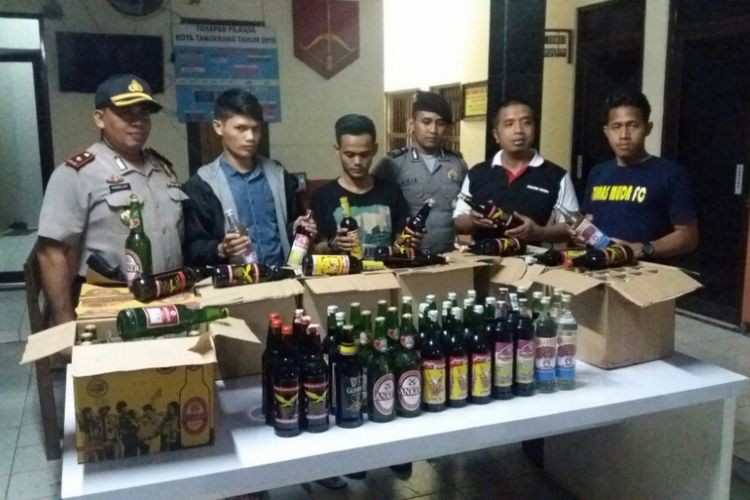Popular Reads
Top Results
Can't find what you're looking for?
View all search resultsPopular Reads
Top Results
Can't find what you're looking for?
View all search resultsToast to public consultation
Forget all the noise over the pros and cons of liquor investment. The bigger issue is the same one that drove hundreds of thousands into the streets last October to protest the Job Creation Law: the absence of public consultation.
Change text size
Gift Premium Articles
to Anyone
P
resident Joko “Jokowi” Widodo has revoked his own ruling to allow investments in liquor companies following massive opposition, including from his coalition government. This policy flip-flop after only one month points to a serious flaw in the way policies are being formulated these days: with little to no public consultation, a crucial element in any democracy.
The reversed ruling, which appears in an appendix to Presidential Regulation No. 10/2021, is a consequence of the Job Creation Law that came into force last month. The law allows Indonesian and foreign companies to invest in the alcohol industry in Bali, East Nusa Tenggara, North Sulawesi and Papua, while other provinces can apply to the central government for investment licenses in the industry.
The Investment Coordinating Board said the regulation took into account that alcoholic beverages were part of the local cultures in the four provinces (which don’t have a majority Muslim population).
The government did not anticipate the fierce opposition from Papua, the most impoverished region in the country where alcoholism is prevalent. Papua Governor Lukas Enembe rallied the opposition against the initial investment ban, including the Papua Legislative Council and the Papuan People’s Assembly (MRP) that together represent almost the entire population of the province.
Relations between Jakarta and Papua haven’t been exactly good in recent years, with a series of policy mishaps and racial discrimination contributing to growing separatist sentiment in the easternmost province. The last thing Jokowi wants is to upset the Papuan people again.
The policy reversal has not stopped Islamic organizations from protesting vociferously, even if the regulation does not permit liquor investments in Muslim-majority provinces. Nahdlatul Ulama (NU) broke ranks with Jokowi’s coalition government by denouncing the new regulation. The clincher came when Vice President Ma’ruf Amin, a conservative cleric and former chair of Indonesian Ulema Council, said he was not informed of the policy reversal until the new regulation was issued.
What was the thinking behind the about-face? Although almost 90 percent of the Indonesian population is Muslim, for whom alcohol is haram, the small percentage of the population that do drink alcohol still comprise a significant market in terms of numbers: just 5 percent of the population would be around 13.5 million people.
And then there are the foreign tourists and residents who like their tipple.
Some provinces also produce traditional alcoholic drinks, like arak in Bali and sopi in East Nusa Tenggara. Bootlegging has become rampant in Java to deadly consequences at times, since these producers circumvent alcohol manufacturing and sales restrictions.
The liquor investment regulation may make economic sense, but it defies the country’s politics. But the most disturbing aspect of the regulation is not so much in its content as in the way it bypassed public consultation yet again, as it did with the Job Creation Law.
We have been seeing more and more of this in the way the government pushes legislation, including the corruption and mining laws as well as many of its COVID-19 policies.
While it’s good that Jokowi took ownership of the error by personally announcing the revocation and nipping the inevitable interministerial blame game in the bud, we hope that the key lesson of this episode is not lost: We need public consultation in developing our policies.










